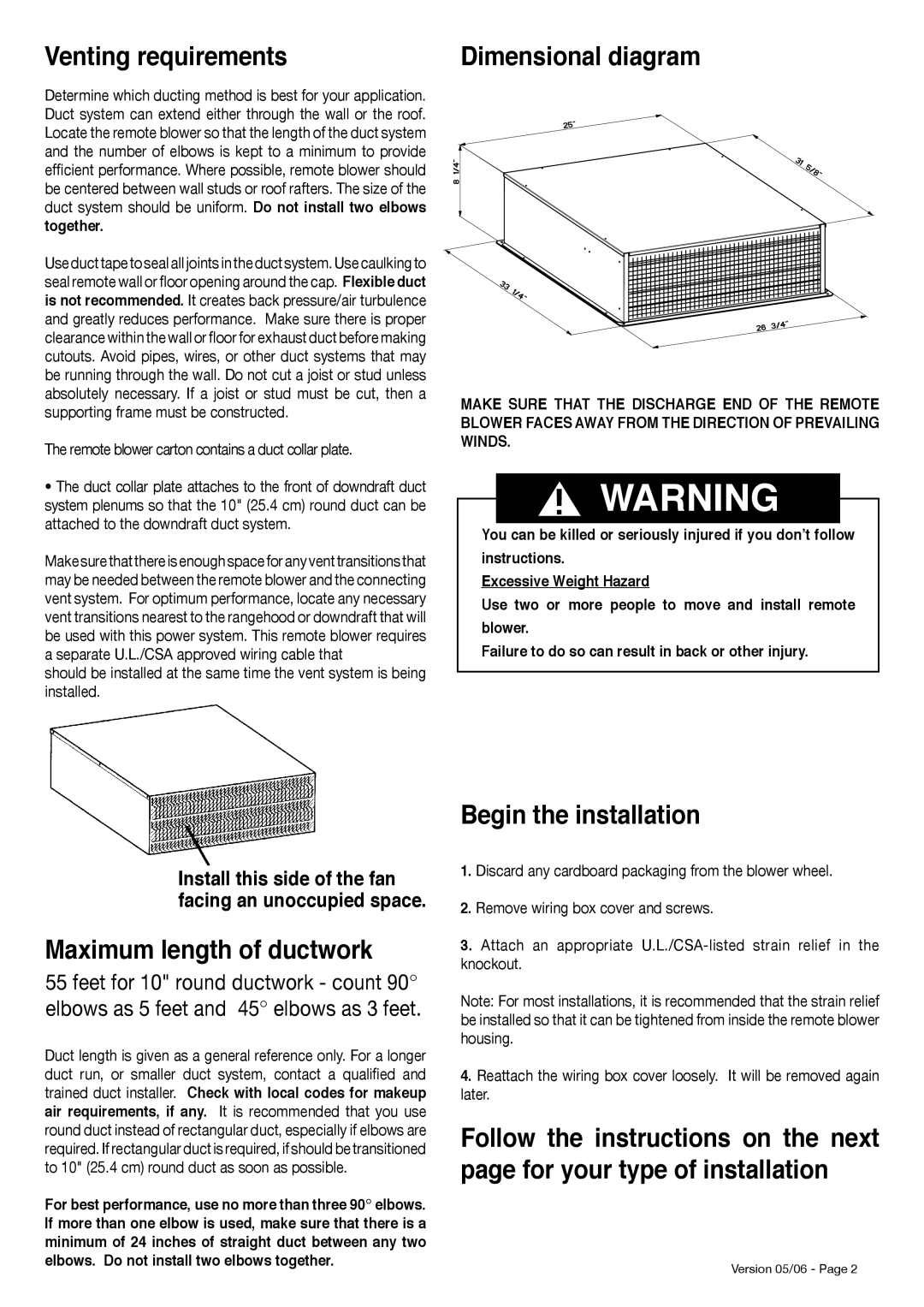1200 CFM specifications
The Faber 1200 CFM range hood is a powerful appliance designed to enhance your kitchen experience by efficiently removing smoke, steam, and odors generated during cooking. With its impressive airflow capacity of 1200 cubic feet per minute, it is ideal for larger kitchen spaces and high-heat cooking methods.One of the standout features of the Faber 1200 CFM range hood is its advanced ventilation technology. This hood employs a multi-layered filtration system that captures grease and other particulates, ensuring a cleaner kitchen environment. The filters are typically constructed of stainless steel, making them durable and easy to maintain. Many models also come with dishwasher-safe filters, allowing for effortless cleaning and consistent performance.
In terms of design, the Faber 1200 CFM range hood embodies a modern aesthetic that suits a variety of kitchen styles. Available in different finishes such as stainless steel, chrome, and black, it can seamlessly integrate into your kitchen decor. Many models boast a sleek, low-profile design that maximizes both form and function without overwhelming the space.
Another significant characteristic of the Faber 1200 CFM is its noise performance. Designed with sound insulation technology, this range hood operates quietly, allowing you to enjoy a peaceful cooking experience. It offers multiple speed settings, enabling you to adjust the ventilation power based on your cooking needs while reducing noise levels.
Faber also focuses on user convenience with features such as LED lighting, which illuminates your cooking area without generating excessive heat. These lights are not just energy-efficient but also enhance visibility during food preparation. Additionally, some models come equipped with intuitive electronic controls, including touch-sensitive buttons, making it easy to operate the hood.
Safety is paramount, and the Faber 1200 CFM range hood often includes features like a delay shut-off timer, which allows the unit to run for a predetermined time before turning off automatically, ensuring all cooking byproducts are adequately vented.
In summary, the Faber 1200 CFM range hood combines efficiency, style, and advanced technology, making it an excellent choice for anyone looking to upgrade their kitchen ventilation system. With its powerful airflow, easy maintenance, and user-friendly features, it stands out as a reliable partner in any culinary endeavor.

